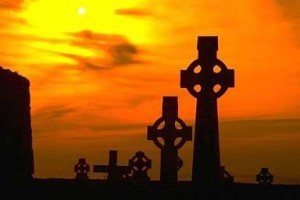[powerpress]
Day 6
From a letter to St. Agnes of Prague
The kingdom of heaven is promised and given by the Lord only to the poor: for he who loves temporal things loses the fruit of love. Such a person cannot serve God and Mammon, for either the one is loved and the other is hated, or the one is served and the other despised.
You also know that one who is clothed cannot fight with another who is naked, because he is more quickly thrown who gives his adversary a chance to get hold of him; and that one who lives in the glory of earth cannot rule with Christ in heaven.
Dear St. Clare,
As a young girl you imitated your mother’s love for the poor of your native Assisi.
Inspired by the preaching of St. Francis, who sang enthusiastically of His Lord Jesus and Lady Poverty, you gave your life to Jesus at nineteen years of age, allowing St. Francis to cut off your beautiful hair and invest you with the Franciscan habit.
All through your life you offered your great suffering for your Sisters, the Poor Clares, and the conversion of souls. You greatly aided St. Francis with his new order, carrying on his spirit in the Franciscans after his death.
Most of all you had a deep love of Jesus in the Most Blessed Sacrament, which fueled your vocation to love and care for the poor.
Please pray for me (mention your request) that I will seek to keep Jesus as my first love, as you did. Help me to grow in love of the Blessed Sacrament, to care for the poor, and to offer my whole life to God.
Heavenly Father, thank You for the gift of St. Clare. Through her intercession, please hear and answer my prayer, in the name of Jesus Your Son.
Amen.
For the complete novena visit the St. Clare Novena Discerning Hearts Page
Tags: Blessed Sacrament, catholic, catholic podcast, catholic prayer, cathollc spirituality, conversion, death, heaven, Jesus, Lord Jesus Christ, love
This entry was posted on Tuesday, August 7th, 2012 at 6:27 am
You can follow any responses to this entry through the RSS 2.0 feed.
[powerpress] Day 8
From the writings of St. Ignatius of Loyola: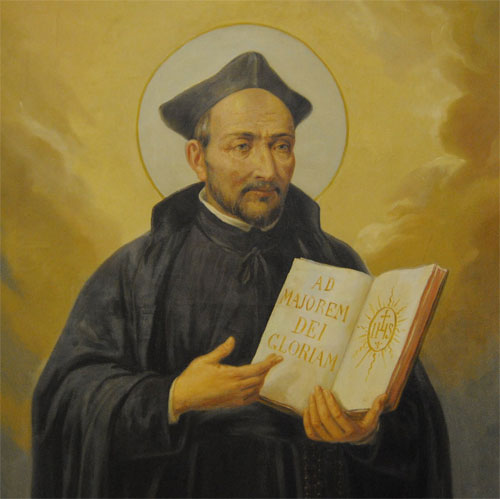
I ask you to put forth your every effort to win honor in heaven, fame and renown before the Lord, who is to be our judge. If God has given you the world’s goods in abundance, it is to help you gain those of heaven and to be a good example of sound teaching to your sons, servants, and relatives [Ep. 1:81].
Be generous to the poor orphans and those in need. The man to whom our Lord has been liberal ought not to be stingy. We shall one day find in heaven as much rest and joy as we ourselves have dispensed in this life [Ep. 1:81].
Our Father….
With St. Ignatius we pray:
Soul of Christ, sanctify me.
Body of Christ, save me. Blood of Christ, inebriate me.
Water from the side of Christ, wash me.
Passion of Christ, strengthen me.
O Good Jesus, hear me.
Within Thy wounds hide me.
Suffer me not to be separated from thee.
From the malignant enemy defend me.
In the hour of my death call me.
And bid me come unto Thee,
That with all Thy saints,
I may praise thee Forever and ever.
Amen.
St. Ignatius of Loyola, pray for us
Tags: death, heaven, joy, st. ignatius of loyola novena, Within Thy
This entry was posted on Monday, July 30th, 2012 at 12:23 am
You can follow any responses to this entry through the RSS 2.0 feed.
OK, First…Purgatory, it’s a good thing. While no one knows exactly (though various mystics have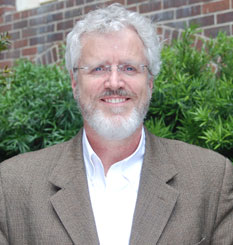 attempted to convey what they experienced by way of their prayer) what will happen there, we do know that if we end up in Purgatory we should be extremely happy since we are most definitely headed for heaven. No one in Purgatory is sent to hell (Yeah!).
attempted to convey what they experienced by way of their prayer) what will happen there, we do know that if we end up in Purgatory we should be extremely happy since we are most definitely headed for heaven. No one in Purgatory is sent to hell (Yeah!).
[powerpress]
First Stop in this exploration is to listen to Deacon James Keating of Institute for Priestly Foramtion with one of the best discussions Bruce and I ever had on the Poor Souls and Purgatory.
So what about praying for the Dead and what does the Church say about the Poor Souls?
What is Purgatory?
The Catechism of the Catholic Church defines Purgatory as follows:
1031 The Church gives the name Purgatory to this final purification of the elect, which is entirely different from the punishment of the damned. The Church formulated her doctrine of faith on Purgatory especially at the Councils of Florence and Trent. The tradition of the Church, by reference to certain texts of Scripture, speaks of a cleansing fire: As for certain lesser faults, we must believe that, before the Final Judgment, there is a purifying fire. He who is truth says that whoever utters blasphemy against the Holy Spirit will be pardoned neither in this age nor in the age to come. From this sentence we understand that certain offenses can be forgiven in this age, but certain others in the age to come (St. Gregory the Great, Dial. 4,39:PL 77,396; cf. Mt 12:31)..
.
.A “final purification” , hmm, sounds like suffering to me, The kind of interior suffering where we have to deal with the painful results of sin inflicted on us by others, but we also with the pain we have inflicted on others…and boy does that hurt. But in this “final purification” (it means just that…final) final healing occurs…an eternal, forever and forever amen, type of healing so we can be  “happy with God forever in Heaven” (to paraphrase the Baltimore Catechism).
The gift of this life here and now on earth is that we can enter into that “purification” now, so that when that moment comes (which we call…death), we can go right to the “pearly gates” and to heaven 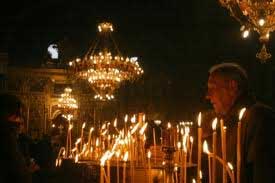 OR we can go to Purgatory to get cleaned up for the beatific vision. St. Teresa of Avila exhorts us to (to paraphrase again) “DO IT NOW, DON’T WAIT”. OK, here are accurate quotes:
OR we can go to Purgatory to get cleaned up for the beatific vision. St. Teresa of Avila exhorts us to (to paraphrase again) “DO IT NOW, DON’T WAIT”. OK, here are accurate quotes:
FROM HOLY SCRIPTURE
There are clear references to Purgatory in both the the Old and the New Testaments. In the Old Testament in 2 Machabees X11 43,46 the Jewish practice of praying for the dead is clearly set out it the following words – ‘It is therefore a holy and wholesome thought to pray for the dead that they may he loosed from their sins.
In the New Testament Our Blessed Lord in Matthew V 26 refers to the prison from which no one is released before his debts are repaid to the last farthing. St. Paul in Cor. 1,3 15 mentions that there are souls who can only be saved ‘yet so as by fire’. It is also stated in Apocalypse XXI, 27 in reference to heaven – ‘There shall in no way enter into it anything defiled”. St. Augustine says that these words clearly indicate that there must be forgiveness of some sins in the world to come, which cannot be in heaven as nothing defiled shall enter therein. Therefore Our Blessed Lord is clearly referring to a place which is neither heaven nor hell and which we call Purgatory.
The learned Protestant, Dr. Jeremy Taylor, writes thus about this matter. ‘We find by the history of the Machabees, that the Jews did pray and make offerings for the dead which appears by other testimonies, and by their form of prayer, still extant, which they used in the captivity. Now it is very considerable that since Our Blessed Saviour did reprove all the evil doctrines of the Scribes and Pharisees, and did argue concerning the dead and the resurrection, yet he spoke no word against this 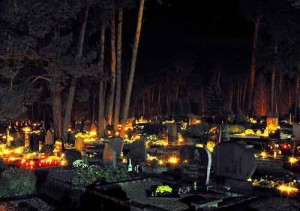 public practice but left it as he found it which he who came to declare to us all the will of His Father, would not have done, if it had not been innocent, pious and full of charity. The practice of it was at first, and was universal; it being plain in TertulIian and St. Cyprian.”
public practice but left it as he found it which he who came to declare to us all the will of His Father, would not have done, if it had not been innocent, pious and full of charity. The practice of it was at first, and was universal; it being plain in TertulIian and St. Cyprian.”
FROM THE FATHERS OF THE CHURCH
“We pray for all among us who are departed believing that this will be the greatest relief for them while the holy and tremendous victim lies present ” – St. Cyril Of Jerusalem
“We make yearly offerings for the dead” – Tertullian
“….. by long punishment for sin to be cleansed a long time by fire and to have purges away all sin by suffering” – St. Cyprian.
‘That you purify me in this life and render me such that 1 may not stand in need of that purging fire” – St. Augustine.
‘No day shall pass you over in silence, no prayer of mine shall ever be closed without remembering you. No night shall pass you over without some vows of my supplications. You shall have share in all my sacrifices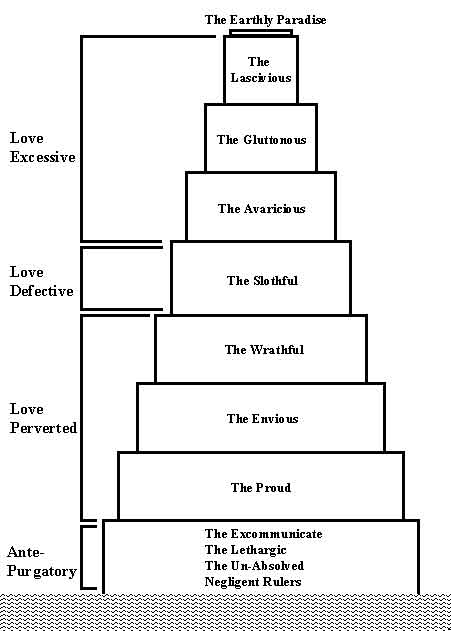 . If I forget you (now that you are dead) let my own right hand be forgotten” – St. Ambrose.
. If I forget you (now that you are dead) let my own right hand be forgotten” – St. Ambrose.
St. Chrysostom in his eighth homily on the Phillipians says that to pray for the faithful departed in the Mass was decreed by the Apostles themselves.
St. Clement of Alexandria says that by punishment after death men must expiate every least sin before they can enter heaven.
Origen in many places and Lactantius teach at large that all souls are purged by the punishment of fire before they enter heaven unless they are so pure as not to stand in need of it.
St. Epiphanius, St. Ephrem, St. Athanasius, Eusebius, St. Paulinus all teach the same.
FROM THE GREAT SAINTS
“No tongue can express, no mind can understand, how dreadful is Purgatory…And be assured that the souls have to pay what they owe even to the last farthing. This is God’s decree to satisfy the demands of justice” –St. Catherine of Genoa.
“Purgatory fire will be more intolerable than all the torments that can be felt or conceived in this life” – Venerable Bede.
“A person may say, I am not much concerned how long I remain in Purgatory, provided I may come to eternal life. Let no one reason thus. Purgatory fire will more dreadful than whatever torment can be seen, imagined or endured in this world.” – St. Caesarius of Arles.
‘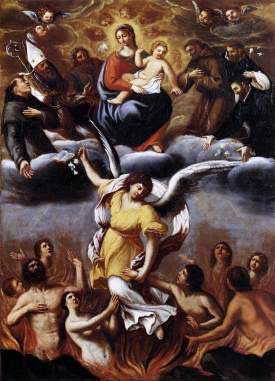 The same fire torments the damned in hell and the just in Purgatory. The least pain in Purgatory exceeds the greatest in this life.” – St. Thomas Aquinas.
The same fire torments the damned in hell and the just in Purgatory. The least pain in Purgatory exceeds the greatest in this life.” – St. Thomas Aquinas.
“My God, what soul would be sufficiently just to enter heaven without passing through the avenging flames’ – St. Teresa of Avila.
‘If we were thoroughly convinced of the torments of Purgatory, could we then so easily forget our parents……. if God would permit them to show themselves we would we would see them cast themselves down at our feet “My children”, they would cry out, “have mercy on us! Oh, do not forsake us!’. – St. John Vianney.
FROM PRIVATE REVELATION
“When I was praying before the Blessed Sacrament on the Feast of Corpus Christi a person enveloped in fire suddenly stood before me. From the pitiable state the soul was in I knew it was in Purgatory and I wept bitterly” – St. Margaret Mary Alacoque.
At FATIMA in 1917 Our Blessed Lady appeared to three children – Lucy, Jacinta and Francesco. The series of appearances by Our Lady to these three children is approved by the Church. Shortly before they took place a young girl from the village had died. She was about fourteen years old. The children asked Our Blessed Mother whether or not she had been saved. The Blessed Virgin advised them that indeed she had been saved but that she would be in Purgatory until the end of the world. (As a result of this revelation many prayers were offered up for her soul and we can only pray that because of this her souls has now been released into eternal glory). From this most authoritative account we can learn three things:
(i) the reality of Purgatory
(ii) great length of time many souls have to stay there
(iii) the tremendous importance of praying for the souls of the departed
Here's some more places you can go if you are still having trouble....
![]() The Burning Truth about Purgatory
The Burning Truth about Purgatory
![]() How to Explain Purgatory to Protestants (James Akin)
How to Explain Purgatory to Protestants (James Akin)
![]() The Roots of Purgatory
The Roots of Purgatory
![]() Purgatory
Purgatory
Tags: baltimore catechism, catechism of the catholic church, catholic, catholic podcast, catholic prayer, cathollc spirituality, Church, Deacon James Keating, doctrine of faith, First Stop, heaven, mystics, poor souls, prayer, purgatory
This entry was posted on Wednesday, November 2nd, 2011 at 12:45 am
You can follow any responses to this entry through the RSS 2.0 feed.
“He was called Jesus”
an excerpt from today’s reflection by Don Schwager: 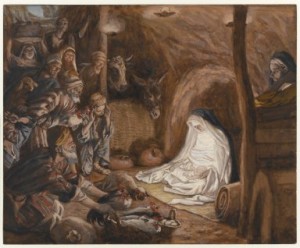
In fulfilment of this precept, Mary’s newborn child is given the name Jesus on the eighth day according to the Jewish custom. Joseph and Mary gave the name Jesus because that is the name given by God’s messenger before Jesus was conceived in Mary’s womb. This name signifies Jesus’ identity and his mission. The literal Hebrew means the Lord saves. Since God alone can forgive sins, it is God who, in Jesus his eternal Son made man will save his people from their sins (Matthew 1:21). In the birth and naming of this child we see the wondrous design and plan of God in giving us a Savior who would bring us grace, mercy, and freedom from the power of sin and the fear of death. The name Jesus signifies that the very name of God is present in the person of his Son who became man for our salvation. Peter the Apostle exclaimed that there is no other name under heaven given among mortals by which we must be saved (Acts 2:12). In the name of Jesus demons flee, cripples walk, the blind see, the deaf hear, and the dead are raised. His name is exalted far above every other name (Philippians 2:9-11). The name Jesus is at the heart of all Christian prayer. It is through and in Jesus that we pray to the Father in the power of the Holy Spirit. Many Christians have died with one word on the lips, the name of Jesus. Do you exalt the name of Jesus and pray with confidence in his name?
“Lord Jesus Christ, I exalt your name above every other name. For in you I have pardon, mercy, grace and victory over sin and death. You humbled yourself for my sake and for the sake of all sinners by sharing in our humanity and by dying on the cross. Help me to always praise your holy name and to live for your greater glory.”
for the full reflection visit : Daily Reading and Meditation
Tags: blessed virgin mary, catholic, catholic podcast, catholic prayer, cathollc spirituality, don schwager, gospel of luke, heaven, Jesus, joseph and mary, name of jesus, reflection, shepherds, solemnity of the blessed virgin mary
This entry was posted on Saturday, January 1st, 2011 at 12:05 am
You can follow any responses to this entry through the RSS 2.0 feed.

